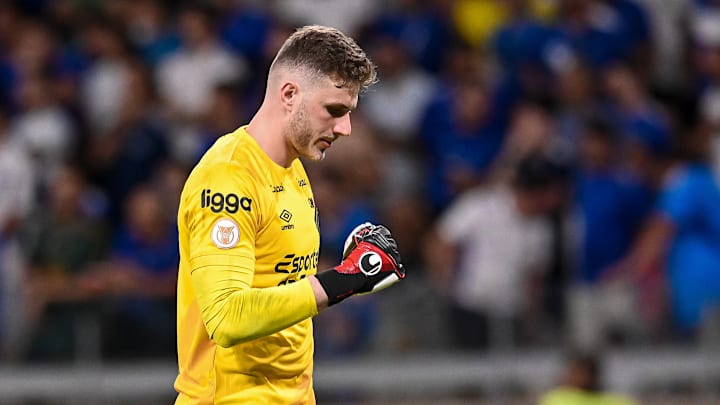In recent days, the name Bento has been dominating sports headlines worldwide. The goalkeeper from Athletico Paranaense has become the focus of an intense battle among European soccer giants, with Chelsea leading the race for his signature. The 24-year-old has experienced a meteoric rise, fueled by his impressive performances for the Brazilian national team, especially against England and Spain, sparking interest from clubs such as Benfica, Internazionale Milano, Nottingham Forest, and Wolverhampton. However, behind this phenomenon lie profound issues that permeate the transfer market and the valuation of Brazilian talent.
In a scenario where player valuations reach astronomical figures, it's natural that the exceptional performance of a player like Bento generates frenzy in the market. However, the goalkeeper's journey also sheds light on the disparities and challenges faced by Brazilian clubs in negotiating their talents. Athletico Paranaense, for example, has rejected considerable offers for the player in the past, signaling a stance of valuing its sporting assets.
Follow The Top Flight on X (Twitter).
The valuation of Brazilian players in international markets doesn't always follow a transparent logic. The case of Bento is emblematic in this regard. Despite substantial offers made by Benfica, the Paranaense club did not succumb to initial pressure, demonstrating a firm stance regarding the value of its player. However, market dynamics can be unpredictable, and the sudden interest from Premier League clubs like Chelsea, Nottingham Forest, and Wolverhampton could change the negotiation landscape.
Moreover, the narrative surrounding the valuation of Brazilian players also reveals a persistent paradox: while talents like Bento attract international interest and are fiercely contested, the current record for the transfer of a Brazilian goalkeeper is modest compared to other recent transactions in the soccer world. The €8 million paid by Internacional to Roma for Alisson's transfer in 2016, for example, seems disproportionate considering the potential of players like Bento.
This discrepancy raises important questions about how Brazilian talents are valued and negotiated in the international market. After all, why do players with outstanding performances in top-tier national teams like Brazil still struggle to achieve valuation equivalent to their European counterparts? This disparity not only reflects a power asymmetry in the transfer market but also underscores the need for broader reflection on the valuation of Brazilian soccer on the global stage.
The case of Bento demonstrates the importance of competent and proactive management of sporting assets, aiming not only to maximize financial returns but also to ensure the development and recognition of players on and off the field.
